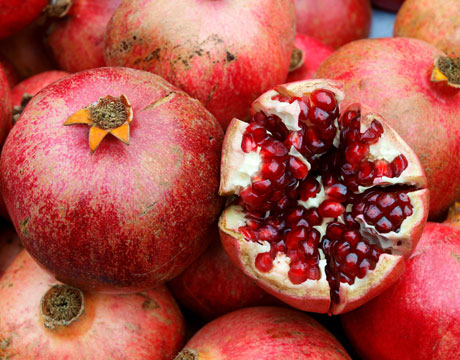Last entered into the category of food able to reduce the risk of breast cancer are pomegranates, which U.S. researchers say they owe their virtues substances that act as inhibitors of the enzyme.
The main role seems that it is an acid found in pomegranates, which blocks the activity of aromatase, the enzyme responsible for conversion of androgens into estrogens, hormones that greatly influence breast cancer. This is the discovery of scientists from the Centre for Research and Treatment of Cancer from City of Hope Duarte, California.
Moreover, many women who have survived breast cancer following treatment on aromatase inhibitors: Aromasin (Pfizer), femara (Novartis) and Arimidex (AstraZeneca). These drugs stop the action of estrogen in “feeding” the tumor.
Of course, researchers do not recommend for these women to stop treatment and eat pomegranates because they are not as effective because of reduced amount of active ingredient. For this reason they recommend the pomegranate, but not as a preventive treatment.
In the future, oncologists at the University of Texas say that more tests would be conducted on pomegranate juice to better understand its effects on estrogen, the symptoms induced menopause, breast tissue density and even cancer prevention.
More than 400,000 women worldwide die annually from breast cancer and about 75% of all cases are estrogen-receptor positive tumors, which means that “feed” the hormone.
Previous studies have shown that pomegranates are rich in antioxidants (vitamins and other substances) that may prevent cancer, heart disease and Alzheimer’s disease.
